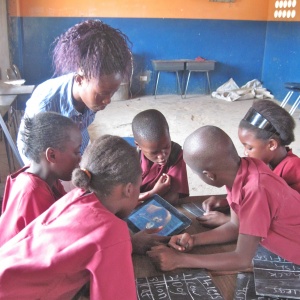OER4Schools/Most Significant Change Technique
MSC is a form of participatory monitoring and evaluation. It is participatory because many project stakeholders are involved both in deciding the sorts of change to be recorded and in analysing the data. It is a form of monitoring because it occurs throughout the program cycle and provides information to help people manage the program. It contributes to evaluation because it provides data on impact and outcomes that can be used to help assess the performance of the program as a whole.
| Resource details | |
| Title | Most Significant Change Technique |
| Topic | |
| Teaching approach | |
| Learning Objectives | |
| Format / structure | |
| Subject | |
| Age of students / grade | |
| Table of contents | |
| Additional Resources/material needed | |
| Useful information | |
| Related ORBIT Wiki Resources | |
| Other (e.g. time frame) | |
| Files and resources to view and download | |
| Acknowledgement | This resource is part of the OER4Schools programme. |
| License | |
Essentially, the process involves ‘searching’ for project impact through:
- collection of significant change (SC) stories emanating from the field level
- systematic selection of the most significant of these stories by panels of designated stakeholders or staff
- collective reading of the stories aloud and regular and often in-depth discussions about the value of reported changes
When the technique is implemented successfully, whole teams of people begin to focus their attention on programme impact. You can find out more about the MSC technique here: http://www.mande.co.uk/docs/MSCGuide.pdf


